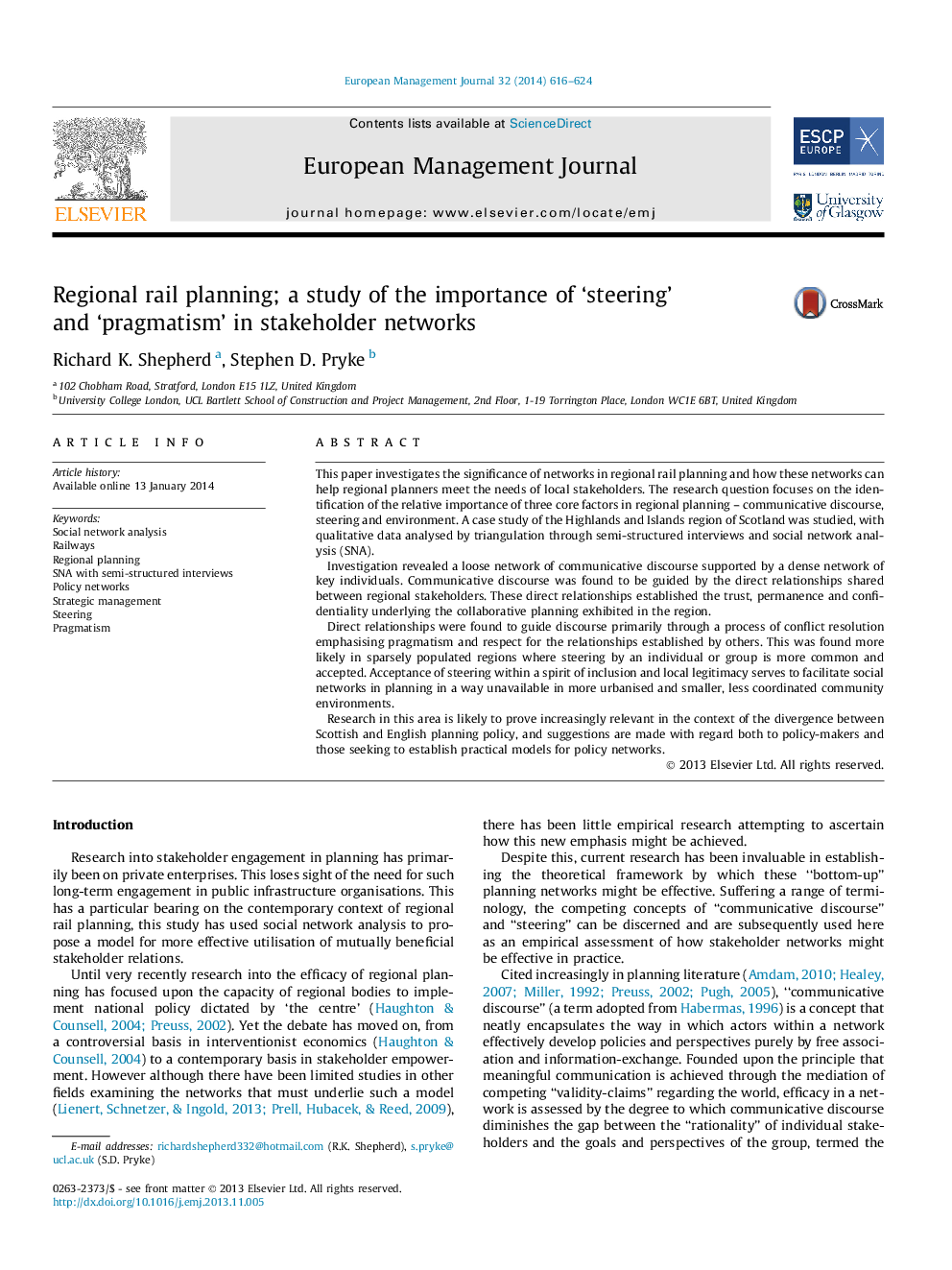| Article ID | Journal | Published Year | Pages | File Type |
|---|---|---|---|---|
| 1014783 | European Management Journal | 2014 | 9 Pages |
•One regional planning region with a dense social network was studied.•Importance of communicative discourse, steering and environment is examined.•Key actors exhibited steering and emphasised pragmatism and trust in conflicts.•Core networks of key actors found more likely in sparsely populated areas.•Regional strategy is shown to be a social process that can benefit from steering.
This paper investigates the significance of networks in regional rail planning and how these networks can help regional planners meet the needs of local stakeholders. The research question focuses on the identification of the relative importance of three core factors in regional planning – communicative discourse, steering and environment. A case study of the Highlands and Islands region of Scotland was studied, with qualitative data analysed by triangulation through semi-structured interviews and social network analysis (SNA).Investigation revealed a loose network of communicative discourse supported by a dense network of key individuals. Communicative discourse was found to be guided by the direct relationships shared between regional stakeholders. These direct relationships established the trust, permanence and confidentiality underlying the collaborative planning exhibited in the region.Direct relationships were found to guide discourse primarily through a process of conflict resolution emphasising pragmatism and respect for the relationships established by others. This was found more likely in sparsely populated regions where steering by an individual or group is more common and accepted. Acceptance of steering within a spirit of inclusion and local legitimacy serves to facilitate social networks in planning in a way unavailable in more urbanised and smaller, less coordinated community environments.Research in this area is likely to prove increasingly relevant in the context of the divergence between Scottish and English planning policy, and suggestions are made with regard both to policy-makers and those seeking to establish practical models for policy networks.
